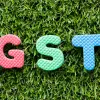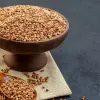GST 2.0 comes as big boon for Sikkim's pharma, tourism & tea sectors

The lower GST rates on hospitality and wellness services will benefit the tourism sector and support hospitality jobs, while the zero GST on cancer drugs and lower rates on medicines will boost pharma manufacturing and exports.
Specialty items like Temi tea and Dalle chilli produced in the state will also become more affordable, strengthening domestic and global market reach.
The tourism industry is essential for Sikkim’s economy, with various hotels, homestays, travel agencies, taxi operators, guides, and eateries supporting local income and jobs. An estimated 7.8 lakh people derive their livelihoods from this sector. Key destinations like Kanchenjunga National Park, Lachen, Lachung, and Yumthang Valley continue to attract increasing numbers of visitors. Gangtok has even been recognised by the Centre as the "Safest Tourist Destination".
With the reformed GST rates, hotel accommodation up to Rs 7,500 per night now carries only 5 per cent GST. A reduced tax rate essentially puts money back in tourists’ pockets, encouraging higher occupancy and longer stays. Higher hotel occupancy also translates to more jobs in this sector.
Another game-changing tax cut is the reduction of GST on "beauty and wellness" services from 18 per cent to 5 per cent. The state is known for its wellness tourism sector and is home to numerous traditional and herbal medicinal centres. With only 5 per cent GST now, wellness tourism packages have become significantly cheaper.
Encouraging tourism via tax relief will help Sikkim diversify its economy further and uplift rural areas. A rise in tourist arrivals will not only increase state GST collections through higher volume but also boost related sectors like transport (vehicle rentals), agriculture (demand for local organic produce), and handicrafts (souvenir sales).
Sikkim has also emerged as a pharmaceutical manufacturing hub with over 50 pharmaceutical companies, including industry giants like Sun Pharma, Cipla, Zydus Cadila, and others, clustered mainly in east Sikkim. The pharmaceutical sector has thus become a significant employer in the state.
The GST reforms abolish or sharply reduce taxes on medicines and medical devices, lowering costs across the pharmaceutical supply chain. In particular, 30 cancer drugs are fully GST-free (down from 12 per cent), and GST on all other drugs and medicines is cut from 12 per cent to 5 per cent. Likewise, most medical and surgical devices, along with thermometers and medical apparatus, now attract only 5 per cent GST. This translates to a 7-13 per cent lower tax load. This magnitude of cost savings will improve healthcare affordability, with medicines now being notably cheaper.
A big gain for Sikkim’s pharma producers will be in export competitiveness and market expansion. Drug formulations, biologicals and medical & scientific instruments account for roughly 63 per cent of the state’s total exports, reaching markets in Europe, the Middle East, Nepal and Japan. Now, with only a 5 per cent to Nil GST on these items, exporters from Sikkim will have a lighter tax burden to manage. The cost of production would effectively drop, allowing these items to be priced more competitively in international markets.
Sikkim’s Temi estate’s tea is widely sought after in international markets such as the USA, Germany, the UK and Japan. The estate is modest in size, with around 450 workers and small producers, but its impact is significant in terms of brand value and rural livelihood in the Namchi district.
For Temi Tea, which has been expanding its domestic retail presence, the cut in GST from 18 per cent to 5 per cent means it can penetrate more markets with better pricing. The export potential of Sikkim’s tea could also see strong benefits with the fall in prices. For the workers and small growers, the GST cut offers better earnings.
Sikkim is also home to a diverse food processing ecosystem. Bakery, snacks, and confectionery items are produced in Pakyong, whereas Soreng is known for its meat-based products. Mangan is renowned for large cardamom, while Gangtok produces the famous Dalley Khorsani chilli, a GI-tagged product.
The recent GST reforms significantly improve cost competitiveness by reducing the tax rate on key items. Pickles, fruit and vegetable juices now attract just 5 per cent GST instead of 12 per cent, while products such as pastries, cakes, soups, and broths have seen reductions from 18 per cent to 5 per cent. These reforms directly lower shelf prices by 6-13 per cent, leading to higher consumer demand. This will further encourage higher fruit-to-factory procurement during peak seasons.
About The Author
Welcome to Aryan Age, an English newspaper that has been serving readers since 2011 from Delhi. With a loyal circulation of over 19,000, we are dedicated to providing our readers with the latest news and information, as well as insightful analysis and commentary that help them navigate the complex and rapidly changing world.









Comment List